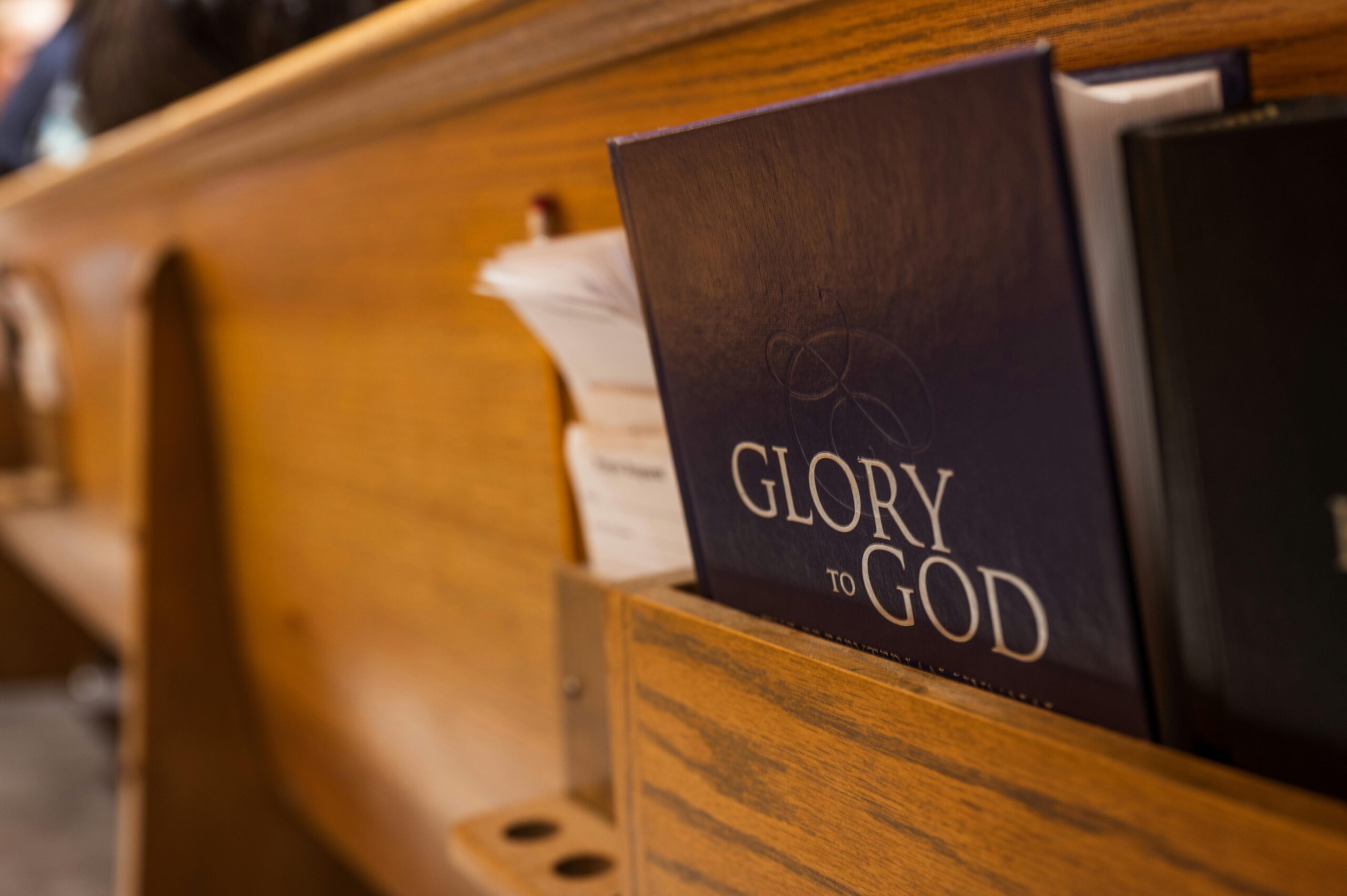June 17, 2025
War, Actual War is Back. Are We Ready?
War: It’s Interested in Us
Never mind the “culture wars”, are we as Christian leaders preparing our people for actual war? Are we as Christians preparing our hearts and lives for what may eventuate? This is no scare tactic. We need to be interested in war because it would seem that once again, real war is interested in us. The culture war was once seen as the bogeyman for us, but war, actual war in real time, appears to be on its way back.
If and when real war kicks in again for us in the West, we may find ourselves wistfully longing for those days when we could mess around with the peripherals. Of course in saying that, many of you will declare “But these culture wars are central, and they’re bitter. And they’re important to win!”
And we say and feel all of that precisely because real war has been peripheral. But no longer.
We’ve been figuring out how to help many a Christian navigate the pronouns and shibboleths of the woke era . But what about helping them figure out how to suffer the loss of their loved ones, or the subjugation of a neighbouring country by a hostile player?
And even when there was war, it was in places we could not pronounce. We would pray for them in church but that was that. But lets face facts: we are most likely going to see a far wider, and more intrusive global conflict coming our way sooner rather than later.
Why do I say it? Well a lot of the signs are there. Huge pressure points that have built up for the past 80 year since the end of WWII. These pressure points are tectonic plates that will need some some of relief and realignment. And war will likely do that.
Wars spread when empires grow and seek to expand, whether in terms of territory or ideology. And empires have grown again in the eight decades since the end of the last war. The fall of the Soviet East was a chimera. Talk of “one-world-order” is long forgotten as we fracture into increasingly bellicose alignments.
Yet we’ve spent so much time in Christian leadership, training and online conversations talking about the “culture wars” that somehow we’ve forgotten that actual war has never gone away in the world, and that the current unrests within countries and between countries is ramping up.
Ironically the culture war within our Western nations has made us uniquely unfit to either be ready for a war in terms of our national preparedness, or within our own minds that this could possibly happen. We are divided internally on the very nature of right and wrong, what constitutes good politics, what it means to be a human, and whose rights trump whose. We are flaccid and unprepared for true conflict.
We are certainly not united – and probably won’t be, if war should come. As I said, I suspect that sometime in the near future we are going to look back at the “good old days” of the culture wars and sigh wistfully.
Real War Is Coming
Yet all the signs are there that real war is coming. Even this week, Australia’s Defence Minister, Richard Marles, declared that Australia will inevitably be drawn into a US-China conflict. That’s that nice party, the ALP, remember. Not those nasty Liberals and their bellicosity.
Not that China is a threat in terms of invasion of Australia I might add, but as a land mass the size we are, and with the Pacific Ocean on the east being of the strategic importance it is, there’s little chance Australia would not be involved. There is simply too much at stake. I know you don’t want to think that, what with cost of living and house prices being your main concerns, but it should be keeping you up at night just as much.

Over the last few decades, whenever pastors or Bible teachers were quoting these words of Jesus:
You will hear of wars and rumors of wars, but see to it that you are not alarmed. Such things must happen, but the end is still to come. (Matthew 24:6)
much of our interest was on this end that was to come. Not so much on the wars and rumours of them. Over the past five decades especially, the evangelical machine has leaned into end-times/last days ideas (whether the hastening of them, the speculation about them, or indeed the reframing of them within a progressive framework).
But what about those wars eh? Clearly we hear of more wars because we are online 24-7. I still remember the first Gulf War in which we were glued to our TVs. The first war to be played out in IRT for us. But we were still at the mercy of the networks and what they wished to show.
Now? We have instant access to war online, streamed and presented in myriad ways from on-the-ground by people who are experiencing it as they film it. And this has all sorts of psychological consequences.
A missionary couple whose furlough to Australia from the Democratic Republic of Congo occurred just prior to the recent violence there, told us of how they were video-WhatsApping their church members back in DRC who were hiding in the jungle with their children, in fear of their lives as Christians around them were slaughtered. Modern technology meets brutality.
Part of our conceit of course was that we were much to modern for war. Just like the moderns in the early part of the 20th century before the charnel house that was WWI. And in term of history, we believed – along with Francis Fukuyama, that we were at the end of it. The desire for global supply chains and liberal democracy was the goal. And everyone wanted those products.
Except the mullahs of course. Except for the mullahs and anyone else who would not be sated by a quiet life filled with white goods and trips to Bali or Ibiza.
War is coming. And most Christians – like most of their secular neighbours and friends – are not ready for it. Just as those at the start of the 20th century were not ready for it. Their lack of preparedness was as much mental as logistical.
Many assumed when the Great War began that it would be over in weeks, a few months at most. Well, four years and ten million death later, an exhausted West declared that this would be the war to end all wars. Yet it was only a precursor to what was coming.
So are our churches preparing our people for war? We ought to be. We ought to be in the same way that we should be preparing people for death. I know, I know, we ought to be preparing them for life too. But it’s a secular conceit of the healthy West that we do not face death every day and so we become complacent about it in a way that others in places (such as the DRC) are not.
Yet even when we had a taste of a few deaths that we thought ought not to happen through a pandemic that was far less devastating to actual life than we feared, and more devastating to our way of life, we were unable to cope.
Is our teaching, or our preaching, or our conversation among our people laced with a sobriety about what it might mean to have the “good life” taken away not merely by a car accident or a financial crisis (these things affecting individuals far more than whole countries), but also by a large scale, long lasting war?
It’s clear to me that the general population has approximately zero appetite for war. And that aligns with us as Christians. I mean, who wants war? But in terms of the ability to navigate war and the rumour (or idea) of war? Then Christians should be well ahead of the curve because of Jesus’ very words.
But note Jesus’ very words. The wars and rumours of wars won’t usher in the end. We have spent an inordinate amount of time and energy in evangelicalism in the West trying to predict which war is the war that will herald the return of Jesus. For too long every oil crisis or nuclear threat was viewed as the final domino, or the last grains of sand in the hour-glass.
Yet Jesus says no such thing. He just says that we will have to live through that and not be alarmed.
If you are in ministry leadership and you want to prepare people for war, in terms of spiritually, intellectually, emotionally, then you need to take Jesus’ words seriously. And perhaps you need to read around the issue and find some sort of handbook to help.
CS Lewis: The Problem of War
At least check out the works of CS Lewis. Remember, he wrote The Problem of Pain in 1939! He was familiar with pain and had seen a lot of it. Lewis wrote through war and wrote about war. And he experienced war first hand along with his brother, as soldiers in the trenches of WWI. He was no ivory-towered academic all of his life. Who else do you know in a humanities faculty in a modern university who has fought in a war?

Think about that, one of the most influential literary minds of the 21st century, who wrote myriad words about so many theological and pastoral matters, fought in the trenches and the mud and the blood. When he wrote the war scenes in the Chronicles of Narnia, I wonder if he had flashbacks to the cries and screams of actual dying humans.
Here are just two things he said about war:
Never, in peace or war, commit your virtue or your happiness to the future. Happy work is best done by the man who takes his long-term plans somewhat lightly and works from moment to moment ‘as to the Lord.’ It is only our daily bread that we are encouraged to ask for. The present is the only time in which any duty can be done or any grace received.
And:
War creates no absolutely new situation: it simply aggravates the permanent human situation so that we can no longer ignore it. Human life has always been lived on the edge of a precipice.
There’s something about Lewis that constantly remains timely. Read him on war. Google his sermons and speeches and buy his works.
But pay particular attention to this last quote. War – just as culture wars and pandemics are – are apocalyptic. They reveal things that may otherwise lie undisturbed, or under-examined. If war does anything to us in our world of white goods and Bali, surely it pushes our gaze over the precipice that we have long wished to ignore, and shown us the dreadful realities of life, death, suffering and eternity.
And that means if our sermons have not already been addressing these deep pastoral issues (they are after all, as Lewis says, NOT absolutely new situations), then we are behind the eight ball. We can’t take out of the bank what we have not put in. Unless we as God’s people have a resilience about us that is drawn from this reality of the human situation always on the brink, then we will scrambling around unsure what to do when the brink becomes too close for comfort.
Christians and War
Yet there is comfort. What does Jesus go on to say in Matthew 24?:
You will hear of wars and rumors of wars, but see to it that you are not alarmed. Such things must happen, but the end is still to come. Nation will rise against nation, and kingdom against kingdom.There will be famines and earthquakes in various places. All these are the beginning of birth pains. “Then you will be handed over to be persecuted and put to death, and you will be hated by all nations because of me. At that time many will turn away from the faith and will betray and hate each other, and many false prophets will appear and deceive many people. Because of the increase of wickedness, the love of most will grow cold, but the one who stands firm to the end will be saved. And this gospel of the kingdom will be preached in the whole world as a testimony to all nations, and then the end will come.
Jesus doesn’t gild the lily! This message is to every generation. We don’t get a hall pass from all of this stuff simply because we are well-educated Westerners. But the end will come. Not the end of our hopes, but the beginning of the new creation is which the one who makes wars to cease will make all wars to cease forever. But until then, wars and rumours of wars. But do not be alarmed.
And in a sense, that’s what CS Lewis would have said too. In a sermon preached at the outset of WWII, he said this to young students embarking on their studies:
If men had postponed the search for knowledge and beauty until they were secure the search would never have begun. We are mistaken when we compare war with “normal life”. Life has never been normal. Even those periods which we think most tranquil, like the nineteenth century, turn out, on closer inspection, to be full of cries, alarms, difficulties, emergencies.
The Christian is most readily fitted for this perspective on life, because most of all, we have a perspective on death! Lewis goes on:
What does war do to death? It certainly does not make it more frequent: 100 per cent of us die and the percentage cannot be increased. It puts several deaths earlier. But I hardly suppose that is what we fear. Certainly when the moment comes it will make little difference how many years we have behind us. As far as I can find out, what we call natural death is usually preceded by suffering: and a battlefield is one of the very few places where one has a reasonable prospect of dying with no pain at all. Does it decrease our chance of dying at peace with God? I cannot believe it. If active service does not persuade a man to prepare for death what conceivable concatenation of circumstances would? Yet war does do something to death. It forces us remember it.
And for a society that has both forgotten death in terms of being focussed on “the good life”, yet one which strangely remains in love with death (end of life and start of life being prime examples), the memento mori triggered by a war may fill our church – and our culture – with the sobriety that is so desperately lacking in so much of our focus and efforts.
Written by
There is no guarantee that Jesus will return in our desired timeframe. Yet we have no reason to be anxious, because even if the timeframe is not guaranteed, the outcome is! We don’t have to waste energy being anxious; we can put it to better use.
Stephen McAlpine – futureproof
Stay in the know
Receive content updates, new blog articles and upcoming events all to your inbox.



